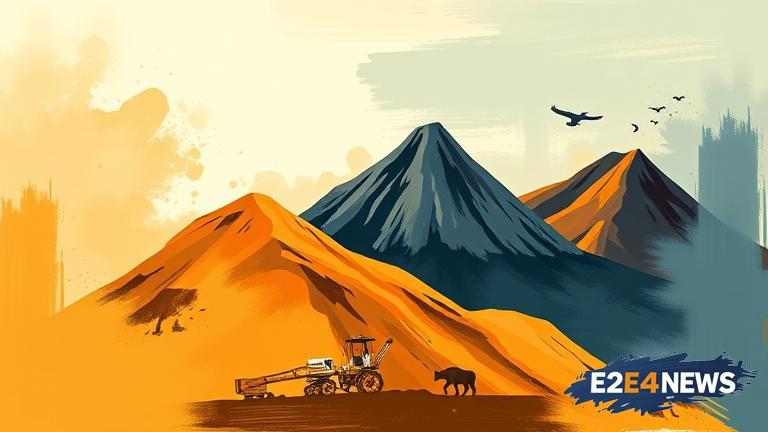India’s economic growth and development are heavily reliant on the availability of critical minerals, which are essential for various industries such as technology, energy, and manufacturing. However, the country’s dependence on imports for these minerals poses a significant risk to its economic security. According to Abhishek Bhatia, a senior official at Boston Consulting Group (BCG), India must adopt a multi-pronged approach to secure critical minerals, including mining, self-reliance, and strategic partnerships. Bhatia emphasized that India has significant mineral reserves, but the country’s mining sector is underdeveloped, leading to a lack of investment and infrastructure. To address this, the government must create a conducive environment for mining, including simplifying regulations and providing incentives for investment. Additionally, India must focus on developing its own mineral processing capabilities, rather than relying on imports. Strategic partnerships with other countries can also help India secure critical minerals, particularly in regions such as Africa and Latin America. Bhatia noted that India’s diplomatic efforts, such as the Act East policy, can be leveraged to secure mineral supplies from countries such as Australia and Indonesia. Furthermore, India must also focus on recycling and reusing critical minerals, as well as developing alternative materials and technologies. The government has already taken steps to promote the use of recycled materials, such as the introduction of the Recycling of Rare Earth Elements (RREE) policy. However, more needs to be done to address the challenges facing the mining sector, including environmental and social concerns. The mining sector is also facing challenges related to land acquisition, environmental clearances, and community engagement. To address these challenges, the government must engage with stakeholders, including local communities, NGOs, and industry players, to develop sustainable and responsible mining practices. Moreover, India must also invest in research and development to improve mining technologies and reduce the environmental impact of mining. The use of technologies such as artificial intelligence, blockchain, and the Internet of Things (IoT) can help improve the efficiency and sustainability of mining operations. In conclusion, India’s quest for critical minerals requires a comprehensive approach that includes mining, self-reliance, strategic partnerships, recycling, and research and development. By adopting this approach, India can reduce its dependence on imports, drive economic growth, and ensure a sustainable and secure supply of critical minerals. The government, industry players, and other stakeholders must work together to address the challenges facing the mining sector and promote sustainable and responsible mining practices. This will not only help India achieve its economic goals but also contribute to the country’s environmental and social objectives. As India continues to grow and develop, the demand for critical minerals will only increase, making it essential for the country to secure a stable and sustainable supply of these minerals. The development of the mining sector will also create new opportunities for employment, investment, and economic growth, particularly in rural areas. Therefore, it is essential for India to prioritize the development of its mining sector and secure critical minerals through a combination of mining, self-reliance, and strategic partnerships.
